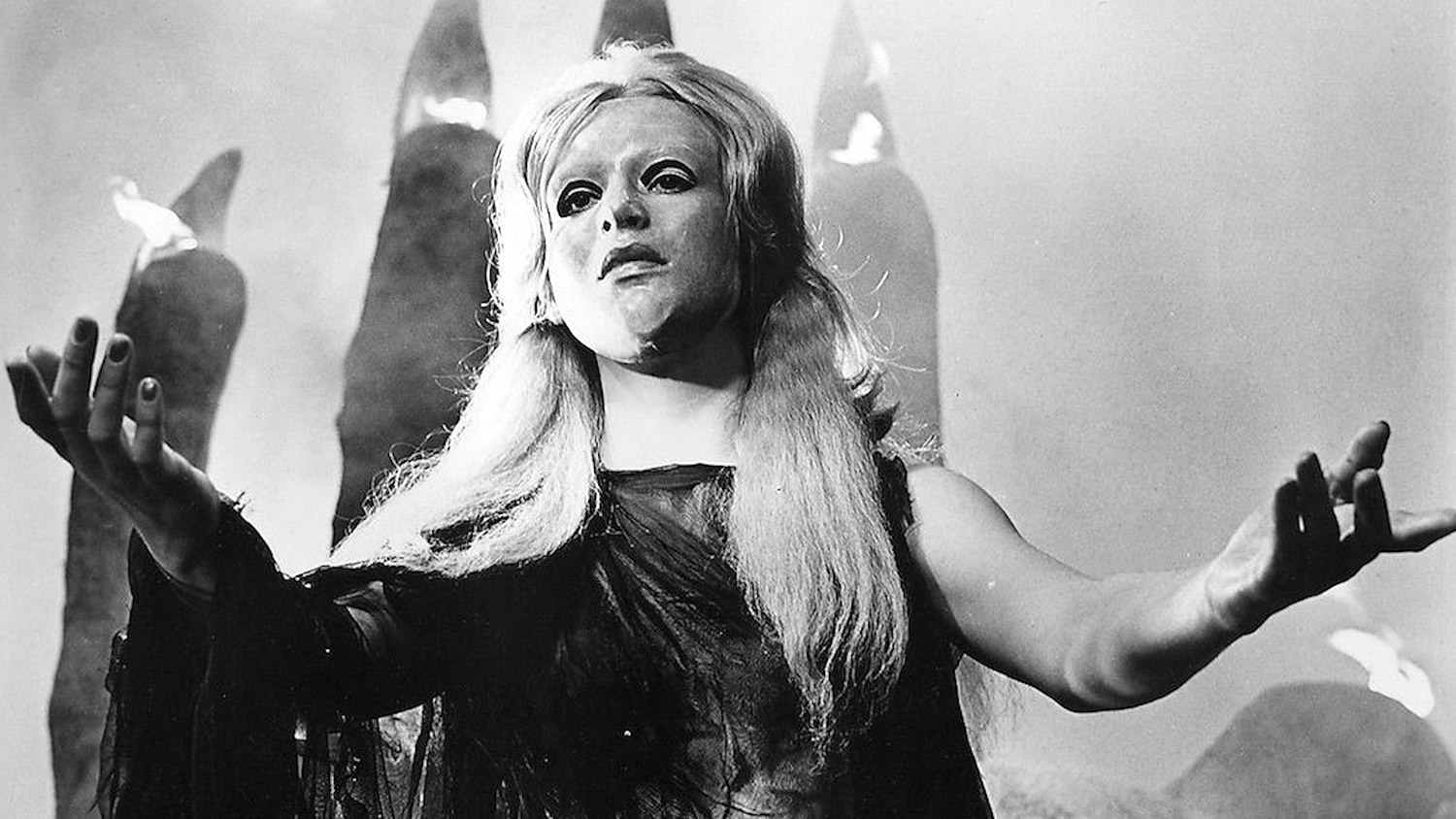
“This mask revealed something … that I had never seen before.”
[The Mask: 1961. 83 minutes. Rating: Approved. Director: Julian Roffman]
Almost everyone familiar with storytelling knows of the concept of “The McGuffin,” even if not by that name. For those who don’t, it’s the idea that there is an object or entity that isn’t really all that important to a story in and of itself, but which nevertheless is key to the motivations of a story’s major characters. In these kinds of stories, much is often made about the McGuffin “falling” into the “wrong hands,” where parties come into conflict to capture and/or possess the McGuffin for one reason or another. In these types of stories, each character is convinced that theirs are the “right hands.” Julian Roffman’s The Mask, however, uses the idea of the McGuffin to offer a subtle rebuke of this type of storytelling and weaves in a mostly-unspoken feminist critique at the same time.
In The Mask, the main character is psychiatrist Dr. Allan Barnes (Paul Stevens), described by the film repeatedly as a man of reason. When one of Barnes’ patients, Michael Radin (Martin LaVut), tries to convince the good doctor that he’s become addicted to a mysterious and addictive power offered by the mask, Dr. Barnes is therefore understandably skeptical. But events soon conspire to bring Dr. Barnes into contact with the mask. Donning it, Dr. Barnes (and the audience) end up thrust into a nightmarish world of hallucinogenic terrors presented to them in 3D. And that addiction seems to be real, as Dr. Barnes keeps hearing Michael’s disembodied voice demanding of him: “Put the mask on now! Put the mask on now!”
The thrust of the story, using the mask as its McGuffin, finds the film’s three primary characters all being affected by the mask coming into their lives. Dr. Barnes fights the irresistible pull of the mask’s power, becoming increasingly unstable and possessive of the artifact. Police Lieutenant Martin (Bill Walker) has been assigned to solve a case involving the mask. And Pam Albright (Claudette Nevins), who is Dr. Barnes’ paramour, simply wants to free him from what she sees from the start is something evil.
So, we have two men who want the mask, and one woman who wants it out of all their lives. Two men who want to possess the McGuffin, and one who spends the movie trying to send it away, even when she comes into possession of it.
“Suppose the mask does what you say,” Pam says at one point to Lieutenant Martin.
“What happens … if a person has no evil in him to be brought out?”
“Is there such a person?” inquires Martin.
As it turns out, the movie will later argue, the answer to that question is “yes.” Because in the film’s climax, when the mask is forced onto Pam’s own head, she cannot see the horrors seen by the men who wear it. Just what’s right in front of her – Dr. Barnes. And she has never heard the mask’s ominous demands that it be worn. She has done everything she can to be rid of it.
For all men’s reason, the movie argues, they are all potential killers – harboring horrors deep in their subconscious. As men strive for “rationality,” the film says, they only suppress an irrational and evil nature. Only women, the film contests, lack that nature, even as the men in the story gently ridicule the women as being soft or sweet, or other such diminutives typical of men of the 1960s. The movie further asserts that women feel no call from the mask because they are in touch with their own nature, versus men who push it away.
It’s something we could still stand to learn. And The Mask suggests it is an ongoing battle. Because after the tale of Dr. Barnes is finished, the mask has its glassy eyes fixed on another prospective wearer.
And it’s a man.

The Plot Sickens…
Get more from Dee Emm Elms with her exploration of The Dark Tapes!
Crash Analysis Support Team:
 Dee Emm Elms
Dee Emm Elms
She born in 1972 in Glens Falls, New York. Dee writes about many subjects ranging from social justice issues to Lost In Space, and often mixes them together. Her favorite topic is horror, and horror movies in particular. Her novel Sidlings may be read at sidlings.com, and she would be pleased for you to check it out. Dee may be contacted at her email sidlingsnovel@gmail.com, or her Twitter: @d_m_elms.
(Movie still from Illusion 360. Dee Emm Elms photo via the author.)
